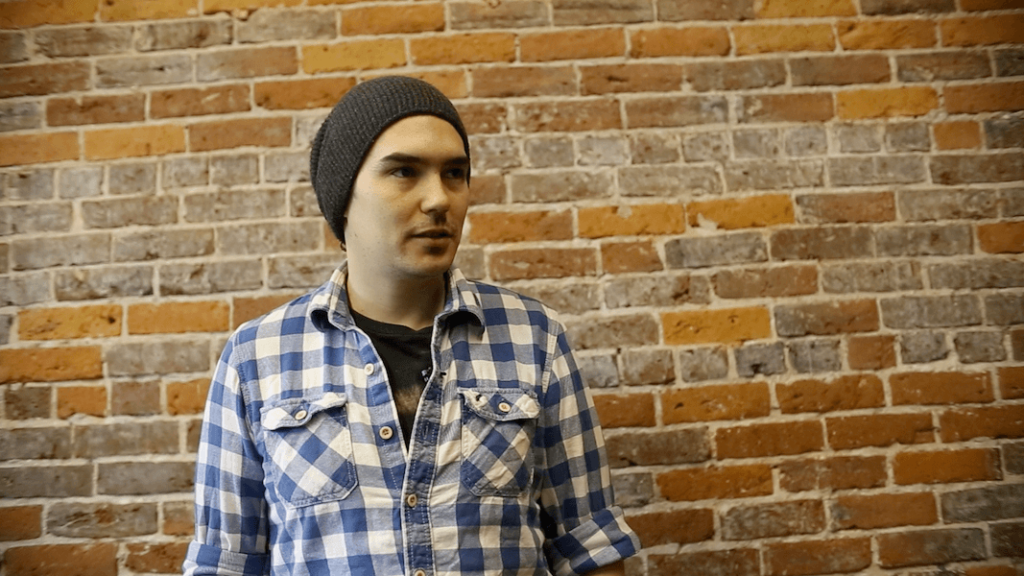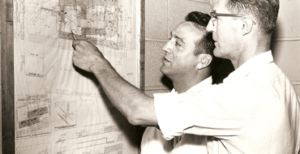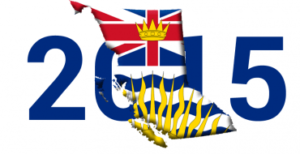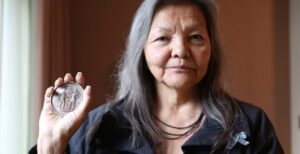Working on the Alberta oil patch and making a good living at the ripe age of 18, Adrian Duke rewarded himself by buying a brand new truck — a purchase which led his employer to tell him that he was going to be working on the rigs for life.
“I was told that I was going to be a lifer — and that just didn’t sit well with me.”
That ignited a fire for Adrian to jumpstart his career by enrolling in business school and completing his Marketing Management Diploma with a specialization in entrepreneurship from the British Columbia Institute of Technology. After graduating from BCIT, Adrian launched several ventures including an Aboriginal Guided Canoe Tour company, a window cleaning company, and a web-based lifestyle company. He also helped his father launch a mobile security company, Brave Shield Security.
Fast forward to today, Adrian has launched some of B.C.’s leading entertainment technology companies including G.U.E.S.S HQ, Vancouver’s first and only fully interactive escape room, and SkyTurtle Technologies Ltd., developers of the world’s first vertical free-fall loop water slide, which holds the World Record for ‘Breaking Design’.
Adrian has raised over $1,000,000 in funding, brought in over $1,000,000 in revenue, secured international manufacturing and distribution contracts, obtained over 16 patents pending, launched over eight companies, and been named Top 30 Under 30 by BC Business Magazine. He is also a descendant of the Muscowpetung First Nation and gives back regularly by engaging with and mentoring Aboriginal youth through public speaking, in addition to being a mentor for a child with Big Brothers of Greater Vancouver.
Despite all his successes, like many entrepreneurs, Adrian has had his fair share of doors slamming in his face; phone calls cut short, and even his friends and family questioning his decision of becoming an entrepreneur. But what kept Adrian’s entrepreneurial fire inside burning?
We sat down with Adrian to discuss his early years as an entrepreneur, what he believes Vancouver startups can do to support each other better, and his passion for utilizing technology to challenge the way people learn through immersive experiences. .
Growing up did you always want to be an entrepreneur?
Growing up, I didn’t realize I wanted to be an entrepreneur, but I was inherently an entrepreneur. I started my first business when I was 12 — it was your standard lawn care and gardening service, and I made posters and hung them around the small town I lived in. When I graduated high school, like most teenagers, I didn’t really know what I wanted to do?—?I went traveling and did my own thing. Then, I was working on the rigs, made good money, bought a new truck and spent my money on things I wanted. One day, my boss told me I was never going to leave the rigs, and I’ll become a lifer — that didn’t really sit well with me so a couple of months later, I enrolled in BCIT, took their entrepreneurship program and from there, I realized what I was meant to do.
The entrepreneurial spirit manifests within the First Nations culture and community, but did you receive a lot of support for your decision to become an entrepreneur (especially one in tech)?
I didn’t grow up on a reserve, so I don’t have that specific use case experience, however, times have changed a lot. Ten years ago, I would say, there was very little support — but First Nations people are inherently entrepreneurs. They were the first to create the economy here in B.C. with trading, but they just had a different value set. They value the time with their family much more than we do today. For most people, time with their family may be below money on the list of priority — which isn’t always the right thing.
Within the First Nations community, if you have someone who is a great cook, a fantastic carver or an athlete, they are encouraged to work on that skill with all their time and be amazing at it. If you show an interest and are dedicated to it, you get a lot of support within the Aboriginal community for entrepreneurs.
There’s an amazing organization that I am affiliated with called the Young Entrepreneurs Symposium, where they hold a national event that takes place every year, as well as regional events and support youth to pursue entrepreneurship. I first got involved about five years ago, and it was a life-changing experience for me — not only was it an amazing chance to connect with my heritage but also to network. I’m still great friends with many of the people I’ve met through the Symposium, some of whom I’ve taken on some business ventures with. I’ve been blessed to get a chance to go back as a speaker, and it’s incredible to see those types of programs continue to exist. It makes me hopeful that we’re going to see a lot more aboriginal entrepreneurs.
How do you deal with the naysayers (especially for something like developing the world’s first vertical loop waterslide!) — what made you keep going?
You really have to be comfortable with hearing ‘no’ or get comfortable being uncomfortable. As soon as I embraced that, and became comfortable not caring about what other people think, I knew that somebody out there valued what I was doing, or saw what I was building was something worth pursuing. Then, the table actually flips where you start to find that more people that are supportive or interested in what you do.
At this point in my life, I would say that about 90% of people are supportive of what I do, with the 10% still not as supportive — but I think this is directly attributed to me being comfortable in my own skin, and confident in what I’m doing.
With your experience as an entrepreneur building multiple businesses in Vancouver, is there anything you think needs to be improved within the Vancouver startup scene?
Vancouver is an amazing place for startups — but I think entrepreneurs tend to get in their own head and isolate themselves from everything else. One thing people should be doing is trying other people’s products and supporting each other a lot more, rather than being so focused on their own thing. You may have limited time as an entrepreneur, but for instance, when we built the Escape Room at G.U.E.S.S. HQ, it was hard to get people to come, let alone friends to try it out — just because people were busy, or had other priorities. They were vocally supportive, but it helps when they actually come down to try the product, give feedback, or come to an event that we were organizing. If we can be more supportive of each other as entrepreneurs, I think that would help the Vancouver startup scene really succeed.
Vancouver itself is also a bit closed off — people are friendly in nature, but for First Nations People coming from small communities, they are used to waving at people they know on the streets with that sense of community. Victory Square, for instance, provides that sense of community that people need. The greatest form of punishment we have (aside from death) is solitary confinement. People inherently need companionship — we need community to be well. I think when people come to Vancouver for the first time, it can feel quite cold — so the more we can be more open and supportive of others’ and their businesses, the more entrepreneurs will flourish in this city.
What inspires you?
I’m inspired by the unique ways people learn or take in information. I had difficulty paying attention in school or caring about school for that matter. I was more of an auditory learner — I didn’t need to study because if I were even to have a conversation with someone about something or focus on a discussion about a specific topic, I would remember everything and not forget it. For me, memorization of written text or vocabulary was something I didn’t enjoy, and I didn’t learn well that way. Now, I see such a massive shift in the way kids and adults alike digest information, and to me, it inspires me to change how we learn and really look at what that means. Seeing people laugh and being able to create experiences through products and making people happy is why I do what I do.
Best advice for any aspiring entrepreneurs?
The best thing I can think of is to pursue what makes you happy and do things that you enjoy. Don’t do it for the money, because you won’t make money in the first how ever long it will take you — and find people that you trust and want to work with. For me, it took me 4 or 5 businesses to find the partners I found today. You can’t do it on your own — and you can’t do it if you’re not in love with it because it will become your whole life. If you’re going to be successful at it, it’s going to be a part of your everyday life.
Did I know that I was going to love building waterslides and building experiences with technology? No. Do I get to do what I love all day every day? No. I have to do accounting and things I don’t like. But I do those things because I absolutely love the feeling of making someone smile when they ride our waterslide for the first time — or seeing a group of friends come out to our Escape Room and saying that was the coolest thing they’ve ever done. That makes all of the other stuff totally worth it. If you get into a business thinking you’ll make a million dollars; you won’t have the passion and drive to make it — unless money is the thing that makes you the happiest.









